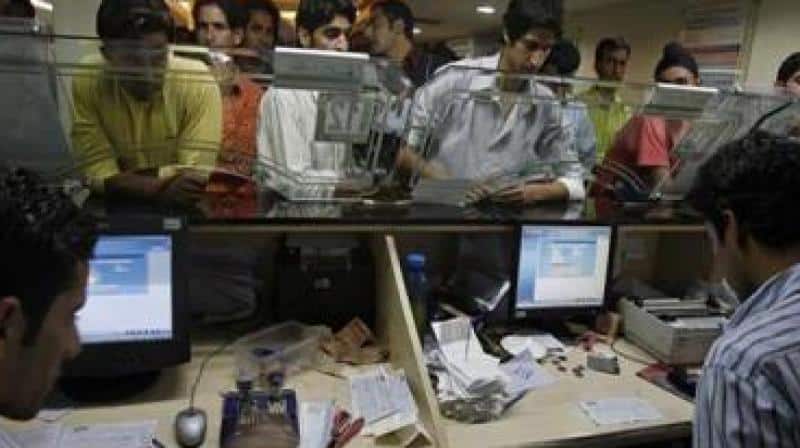New Delhi: Public sector banks (PSBs) have kick-started the review of their overseas operations by identifying 41 units for “rationalisation” as part of the larger reform process, a top official said on Thursday.
Rationalisation could be in terms of consolidation of operations, trimming of staff strength, exiting some of the non-core and non-profit activities or closing down some of unviable overseas offices.
“Many banks entered the overseas markets. This activity has to be looked into. Banks have started the process already and about 41 operations they have decided to rationalise,” Financial Services Secretary Rajiv Kumar told PTI.
The government on Wednesday announced that it will infuse an unprecedented Rs 88,139 crore capital in 20 PSBs before March 31 to boost lending and revive growth. It also unveiled steps to tackle the bad loan problem which has reached record levels.
The recapitalisation would be dependent on performance and reforms, it had said, adding that banks will have to adopt the differentiated business strategy and exit from non-core businesses and focus on their core competencies.
“It is not everybody does everything. It is better if they focus on their core competencies and build on that. They should rather aspire for leadership in their identified market segments as per core competence rather than playing second fiddle,” he said.
Going forward, each bank will adopt a board approved policy as per its core strength and monetise their non-core activity, he said, adding that many banks have identified various non-core assets and started monetising them.
PNB has already announced its intension to close down representative offices in Australia and China. For example, Bank of India last year exited its entire 5 per cent holding in credit bureau TransUnion Cibil via a sale of shares to US based TransUnion International.
Besides, Union Bank of India sold sell 40 per cent stake in its mutual fund business to Dai-ichi Life Insurance Company of Japan. Earlier, Union Bank had tied up with KBC Participations Rental SA to form KBC Asset Management Company, where the Belgian firm held 49 per cent in the asset management business.
Later, in September 2016, KBC sold its entire stake in mutual fund to Union Bank of India. There are 21 public sector banks which together have market share of 70 per cent.
Kumar further said that each PSU is an article of faith and the government stands behind each PSBs with unequivocal commitment as the largest shareholder.
“So depositors money is safe. Each PSBs would be maintaining regulatory capital and have healthy networth and core capital,” he added.
PTI

